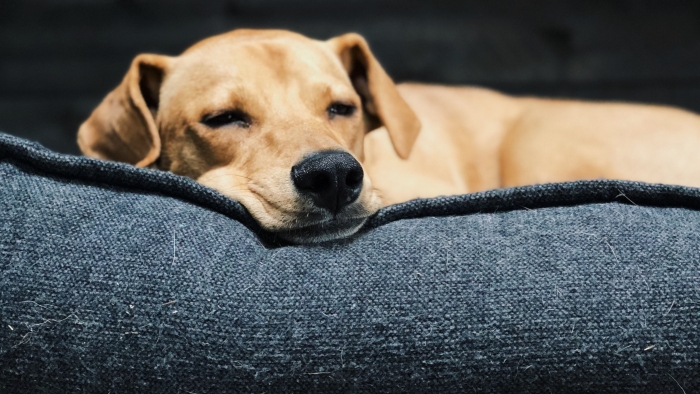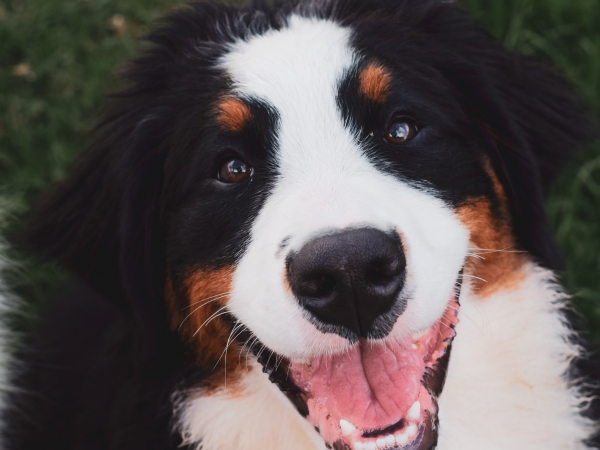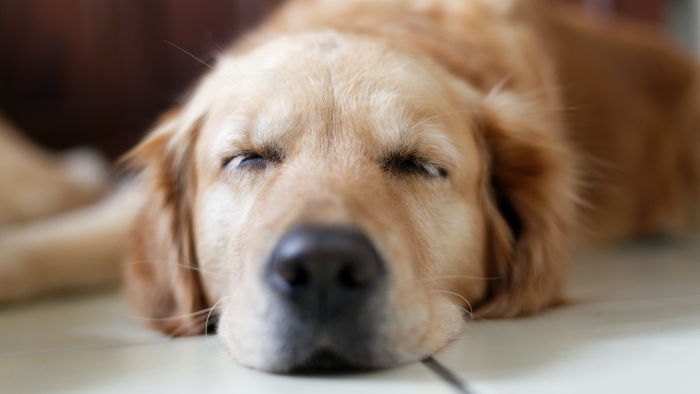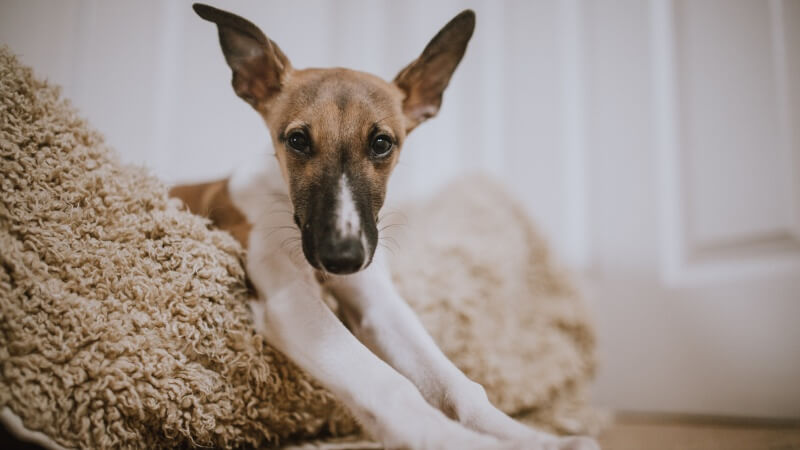
Diy PVC Dog Bed:A Mini Guide
DIY PVC dog bed is a wonderful way to show appreciation to your canine companions, who are undeniably man’s best friends. These loyal pets provide

If you’re wondering, “How long do dogs sleep?” you’re not alone. Many pet owners observe their dogs effortlessly dozing off in various spots. It’s common for some dogs to rest for over 12 hours daily.

The American Kennel Club (AKC) notes that an average dog sleeps about half its day sleeping, with larger breeds, puppies, and senior dogs needing even more sleep. In contrast, working dogs often have longer periods of wakefulness.
Determining what’s typical and when to seek veterinary advice can be puzzling. Understanding your dog’s sleep needs is key. Let’s dive into the details.
While humans aim for six to eight hours of sleep for optimal functioning, achieving this can be elusive due to stress, back pain, insomnia, and other factors. In comparison, dogs seem to have it easy.
Our furry companions typically enjoy 10 to 12 hours of sleep each day, as reported by Reader’s Digest. However, the amount of sleep a dog needs, however, can vary based on age, size, breed, and individual health requirements.
Puppies, for instance, might require as much as 20 hours of sleep within a 24-hour period. This high demand for sleep is also common in senior dogs and larger breeds. PetMD notes that large breeds like the Bernese Mountain Dog expend considerable energy and thus need more rest than smaller breeds such as Chihuahuas or Poodles.

Typically, dogs spend around half their day sleeping, often grabbing short power naps instead of engaging in long nighttime slumbers.
Dogs don’t strictly adhere to being diurnal or nocturnal creatures. They tend to mimic their human companions’ habits, as pointed out by Michelson Found Animals. So, if you’re someone who stays up late, your canine buddy is likely to adopt a similar nighttime routine.
Puppies, much like human infants, spend a lot of their time playing and exploring, which can quickly deplete their energy. Additionally, their rapid growth and development mean they expend a lot of energy.

According to the American Kennel Club (AKC), it’s normal for puppies to sleep for 18 to 20 hours per day. This extensive sleep is crucial for the proper development of their brain, immune system, muscles, and bones.
It’s interesting to note that puppies often seek proximity to their human families. A 2020 study in the journal Animals revealed that 86% of dogs aged four to 12 months preferred to be near people at night.
However, the same study indicated that most puppies only slept for 10 to 11 hours in a 24-hour period, which is notably less than the duration suggested by other research.
In conclusion, the amount of sleep a puppy needs can vary based on factors like age, breed, and level of activity. Whether your puppy sleeps as little as 10 hours or as much as 20 hours a day, it’s generally not a cause for concern.
As a devoted pet parent, it’s essential to ensure your puppy gets adequate rest day and night.
Here are some strategies to assist you:
Ensure he goes out for a bathroom break before heading to bed. If he needs to go more often, placing a pee pad inside his crate could be beneficial. Remember to change it as necessary and clean the area daily with a pet-safe cleaner.
Older dogs often need more rest as they easily become fatigued, a point highlighted by the AKC. Age-related issues like joint pain, kidney disease, and hypothyroidism also play a role in reducing their activity levels.

Typically, adult dogs sleep in short bursts throughout the day, but those in their senior years tend to have longer naps interspersed with periods of minimal activity, as Dr. Sara Ochoa mentioned to Reader’s Digest.
For instance, a senior dog might sleep for an hour, briefly wake up for a walk or interact with family, and then go back to sleep.
As dogs get older, their need for sleep increases. However, the rate of aging varies among breeds; a seven-year-old Bichon Frise may be more energetic than a Great Dane of the same age.
According to PedMD, it’s common for senior dogs to sleep between 14 and 20 hours a day. Monitoring your aging dog’s sleep patterns and noting any changes is crucial for pet parents.
An active senior dog suddenly spending most of the day asleep is not typical.
If your pet struggles with falling or staying asleep, it’s important to consult your vet. Such changes could signal underlying issues like dementia or heart disease, as noted by Dr. Emily Jones. Alongside altered sleep patterns in senior dogs, you might observe symptoms like:
For instance, older dogs roaming at night might be experiencing dementia or other cognitive challenges, as the AKC points out. Symptoms like vomiting and appetite loss could hint at infections or possibly cancer.
It’s crucial to contact your veterinarian promptly if you observe any of these signs in your senior dog.
The amount a dog sleeps can vary based on factors like size, breed, activity level, and more. Generally, smaller dogs might sleep less than larger breeds, though there are exceptions.
Large working breeds such as the Akita, German Shepherd, and Rottweiler are naturally active and might sleep less than average. However, a Rottweiler with an indoor, sedentary lifestyle may sleep more compared to its working counterparts.
Pet Insight highlights that American Staffordshire Terriers average the most sleep among breeds, clocking in around 8.71 hours. Some sources even suggest they need up to 12-14 hours daily.
Following closely are:
Most of these breeds are relatively large. On the flip side, breeds sleeping the least include:
However, breed is just one component affecting sleep duration. A dog’s health, daily activities, and sleeping environment are also crucial.
The Animals study emphasizes that a dog’s social interactions with people and other pets, as well as their emotional well-being, influence their sleep patterns.
The temperament and behavior of a dog also play a role. A playful, high-energy dog may sleep less than others of the same age, size, and breed.
Have you ever observed your dog’s paws moving, or twitching, or even heard them whimper while asleep? VCA Animal Hospitals states that dogs start dreaming about 20 minutes into their sleep.
During this dream phase, their breathing might become uneven, and you can see their eyes moving under the eyelids. Muscle twitches, as though they’re engaging in a chase, are common. These dreams often reflect their daily experiences. It’s interesting to note that smaller dogs tend to dream more frequently, while larger breeds usually experience longer dreams.
VCA Animal Hospitals’ experts advise against waking dogs during these moments, as they might react defensively, sometimes even biting.
Like us, dogs can have nightmares, which is a normal part of their sleep cycle. Dr. Alfred Richard suggests letting the nightmare play out and then offering comfort and cuddles once your pet awakens.
PetMD emphasizes that dogs, like humans, can suffer from sleep disorders, including REM Behavior Disorder, narcolepsy, insomnia, and sleep apnea.
For instance, narcolepsy typically affects younger dogs and can cause them to collapse into a deep sleep suddenly. If you observe this, it’s best to record the incident and reach out to your vet. Insomnia in dogs may indicate stress, anxiety, or other underlying health issues.
While it’s usually normal for dogs to sleep a lot, you should be concerned if there are any significant changes in their sleep patterns, excluding those associated with aging. Be alert to the following signs:
Sudden shifts in appetite, thirst, sleep patterns, and overall behavior can be warning signs. If you notice symptoms like disorientation, reduced mental clarity, anxiety, or irritability, it’s important to seek veterinary care.
Having addressed “How long do dogs sleep,” it’s crucial to take measures to ensure your furry companion enjoys sufficient rest.
Engaging your dog in daily activities and establishing a consistent bedtime routine can greatly enhance sleep quality. For dogs suffering from conditions like arthritis or joint pain, consider orthopedic or raised beds. Ensure their sleeping environment is serene and dark at night. Also, maintaining a cool room temperature, ideally below 81 degrees Fahrenheit, can prevent overheating during sleep.
Remember, sleep plays a vital role in the well-being of pets, just as it does in humans. For more insights, refer to our guide on children’s sleep needs. And, should you have any further questions, our team is always here to assist.
FAQ 1: Is it normal for my dog to snore while sleeping?
Answer: Yes, it’s normal for some dogs to snore, especially those with short snouts like Bulldogs and Pugs. However, excessive snoring can sometimes indicate breathing issues, so keep an eye on the frequency and loudness.
FAQ 2: How do I know if my dog is getting too much sleep?
Answer: While dogs sleep a lot, excessive sleepiness, especially with changes in behavior or activity levels, could be a sign of underlying health issues. If you’re concerned, it’s best to consult a veterinarian.
FAQ 3: Can a dog’s sleeping position indicate anything about their health?
Answer: Dogs sleep in various positions, but if you notice a sudden change in your dog’s preferred sleeping position, especially if it seems to be for comfort from pain, it might warrant a vet check.
FAQ 4: Should I let my puppy sleep in my bed?
Answer: While it’s a personal choice, allowing a puppy to sleep in your bed can create dependency issues and might disrupt your sleep. It’s often recommended to provide them with their own bed or crate.
FAQ 5: Are elevated dog beds beneficial for all dogs?
Answer: Elevated dog beds can be beneficial, especially for dogs with arthritis or joint issues, as they provide extra support and ease the pressure on joints. They’re also good for keeping dogs cool in warmer climates. However, for smaller or anxious dogs, a low, enclosed bed might be more comforting.
Do dogs dream? Do Dogs Dream | VCA Animal Hospitals. (n.d.). Retrieved February 19, 2022


DIY PVC dog bed is a wonderful way to show appreciation to your canine companions, who are undeniably man’s best friends. These loyal pets provide

When it comes to ensuring your pet’s comfort, the choice of a dog elevated bed can make a significant difference. In this blog, we delve

The moment you think of a dog elevated bed, the question arises: is it more suitable for a Great Dane or a Chihuahua? This blog

In the quest for the perfect dog elevated bed, pet owners are often faced with a dilemma: foldable or fixed? Each type offers unique benefits,

DIY PVC dog bed is a wonderful way to show appreciation to your canine companions, who are undeniably man’s best friends. These loyal pets provide

When it comes to ensuring your pet’s comfort, the choice of a dog elevated bed can make a significant difference. In this blog, we delve

The moment you think of a dog elevated bed, the question arises: is it more suitable for a Great Dane or a Chihuahua? This blog

In the quest for the perfect dog elevated bed, pet owners are often faced with a dilemma: foldable or fixed? Each type offers unique benefits,
Copyright © 2024 skyrestelevateddogbed. All Rights Reserved.